detail profile yoshiko kuga
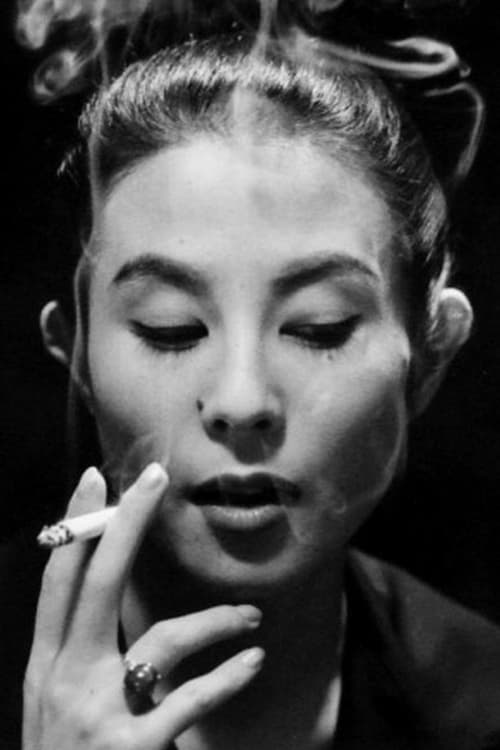
Yoshiko Kuga
Kuga Yoshiko
atau dikenal sebagai
Riwayat Hidup
Yoshiko Kuga (久我 美子, Kuga Yoshiko, 21 January 1931 – 9 June 2024) was a Japanese actress.
Kuga was born in Tokyo, Japan.
In 1946, while still attending Gakushuin Junior High School, she became an actress for Toho studios.
In 1947, she made her debut as one of the lead actresses in the omnibus movie Four Love Stories (四つの恋の物語, Yottsu no Koi no Monogatari).
In the 1950s, she started working independently and starred in many productions of the Shochiku studios under the direction of Keisuke Kinoshita.
Other important directors include Kenji Mizoguchi (The Woman in the Rumor), Yasujirō Ozu (Equinox Flower), and Tadashi Imai (An Inlet of Muddy Water).
Since the 1970s, she appeared mainly on television and on stage.
Kuga was married to actor Akihiko Hirata from 1961 until his death in 1984.
She died from aspiration pneumonia on 9 June 2024, at the age of 93.
Info Pribadi
Peran Yang Di Mainkan Yoshiko Kuga
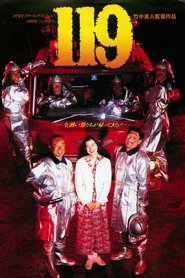 In Hararicho a small and quiet...
In Hararicho a small and quiet...119 1994
In Harari-cho, a small and quiet bayside town by the sea, the firemen have not seen a fire for nearly twenty years. Each day passes eventlessly... until one day. The monotony of their daily lives is interrupted by the appearance of a beautiful female college student, Momoko, who comes to visit her aunt. After catching a glimpse of Momoko, both Tatsuya and Nobuyuki can't stop thinking about her. Since then, the small town is not so quiet anymore…
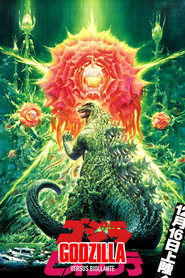 After the previous Godzilla attack a...
After the previous Godzilla attack a...Godzilla vs. Biollante 1989
After the previous Godzilla attack, a miniature arms race ensues to collect his cells. Concerned over Godzilla's possible return, the Japanese government uses the cells to create a new bio-weapon, ANEB (Anti-Nuclear Energy Bacteria). They seeks the aid of geneticist Genshiro Shiragami, who's experiments result in a new mutation.
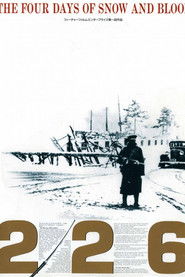 Based on the 226 Incident an attempted...
Based on the 226 Incident an attempted...Four Days of Snow and Blood 1989
Based on the "2.26 Incident", an attempted coup d'état in Japan 1936, launched by radical ultra-nationalist parts of the military. Several leading politicians were killed and the center of Tokyo was briefly held by the insurgents before the coup was suppressed.
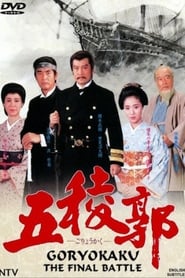 After the fall of the Tokugawa...
After the fall of the Tokugawa...Goryokaku 1988
After the fall of the Tokugawa Shogunate, there was a series of battles fought while the former supporters of the Tokugawa shogunate retreated to the north where they actually started a sovereign nation that was recognized by more than one European country. Survivors of the Shinsengumi were among the followers of Enomoto Takeaki who took them to the northernmost island of Ezo where they fought their final battle at the star shaped fort, Goryokaku. The Japanese Civil Wars fought in the name of the emperor signaled the complete end of the feudal system and Japan’s entry into the modern world as those brave samurai tried to halt progress and learned that the age of modern warfare and weaponry had passed them by. Swords were no match for rifles and cannons, nor was any man a match for the power of the imperial flag. Japanese loyalty to the emperor has long defined the nation and culture despite the changing times.
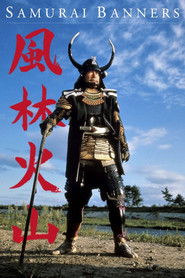 Kansuke Yamamoto is a samurai who...
Kansuke Yamamoto is a samurai who...Samurai Banners 1969
Kansuke Yamamoto is a samurai who dreams of a country united, peaceful from sea to sea. He enters the service of Takeda, the lord of Kai domain. He convinces Takeda to kill the lord of neighboring Suwa and take his wife as a concubine. He then convinces the widow, Princess Yu, to accept this arrangement and to bear Takeda a son. He pledges them his life. He then spends years using treachery, poetic sensibility, military and political strategy to expand Takeda's realm, advance the claim of Yu's son as the heir, and prepare for an ultimate battle with the forces of Echigo. Has Kansuke overreached? Are his dreams, blinded by love, too big?
 One week into newlywed Teiko Uharas...
One week into newlywed Teiko Uharas...Zero Focus 1961
One week into newlywed Teiko Uhara's marriage, her husband, Kenichi, leaves on a short business trip and never returns. Teiko travels across Japan to search for him, and along the way discovers some surprising facts about her husband's past. With only a pair of old photographs among his belongings to go off of, Teiko tries to figure out what has happened to him.
 A budding gangster enthralls a freeloading...
A budding gangster enthralls a freeloading...Cruel Story of Youth 1960
A budding gangster enthralls a freeloading young woman, soon taking advantage of her knack for hitch-hiking to rob middle-class, middle-aged men.
 A lighthearted take on director Yasujiro...
A lighthearted take on director Yasujiro...Good Morning 1959
A lighthearted take on director Yasujiro Ozu’s perennial theme of the challenges of intergenerational relationships, Good Morning tells the story of two young boys who stop speaking in protest after their parents refuse to buy a television set. Ozu weaves a wealth of subtle gags through a family portrait as rich as those of his dramatic films, mocking the foibles of the adult world through the eyes of his child protagonists. Shot in stunning color and set in a suburb of Tokyo where housewives gossip about the neighbors’ new washing machine and unemployed husbands look for work as door-to-door salesmen, this charming comedy refashions Ozu’s own silent classic I Was Born, But . . . to gently satirize consumerism in postwar Japan.
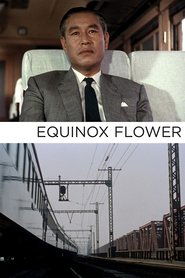 Wataru Hirayamas outwardly liberal views on...
Wataru Hirayamas outwardly liberal views on...Equinox Flower 1958
Wataru Hirayama's outwardly liberal views on marriage are severely tested when his daughter declares that she is in love with a musician and is adamant to live life her own way, instead of agreeing to an arranged marriage. Outwitted by his female relatives, Hirayama stubbornly refuses to admit defeat.
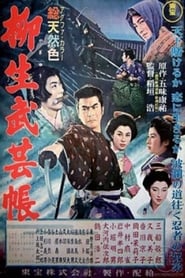 In the Tokugawa Era the clan...
In the Tokugawa Era the clan...Yagyu Secret Scrolls 1957
In the Tokugawa Era, the clan of Lord Yagyu has hidden away three scrolls containing clan secrets which, if revealed, would cause revolution and disaster for the clan. The information is divided among the three scrolls, all of which must be possessed for the secrets to be understood. When Princess Yuhime steals the scrolls, Tasaburo, a samurai with magical powers, and his brother Senshiro are sent to retrieve them.
 Ichiro Yoshida the father of the...
Ichiro Yoshida the father of the...Yellow Crow 1957
Ichiro Yoshida, the father of the boy Kiyoshi, who has been repatriated from China, returns home after a ten-year separation. The father, who has been estranged from his son for many years, pays no attention to the boy, often punishes him unfairly, and gives all his tenderness to his little daughter, who was born after his return. The boy sees all the injustice of his father and, offended, leaves home. The father realized that he was wrong, that he was guilty before his son. The mother finds the boy and brings him home. The father and the son become friends from that day on.
 Yukikos fiance learns her mother runs...
Yukikos fiance learns her mother runs...The Woman in the Rumor 1954
Yukiko's fiance learns her mother runs a geisha house and ends their engagement. She despises what her mother does until one of her clients shows interest and starts to woo her.
 The eldest daughter of a rural...
The eldest daughter of a rural...Brother and Sister 1953
The eldest daughter of a rural family Mon returns home from Tokyo pregnant after an affair with a college student Kobata, which causes a scandal that will threaten the marriage prospects of the younger sister San, in her cash-strapped family. The ill-tempered eldest brother Inokichi decides to take on the role of disciplinarian, with harrowing results.
 Kameda who has been in an...
Kameda who has been in an...The Idiot 1951
Kameda, who has been in an asylum on Okinawa, travels to Hokkaido. There he becomes involved with two women, Taeko and Ayako. Taeko comes to love Kameda, but is loved in turn by Akama. When Akama realizes that he will never have Taeko, his thoughts turn to murder, and great tragedy ensues.
 Doctor Sanada treats gangster Matsunaga after...
Doctor Sanada treats gangster Matsunaga after...Drunken Angel 1948
Doctor Sanada treats gangster Matsunaga after he is wounded in a gunfight, and discovers that he is suffering from tuberculosis. Sanada tries to convince Matsunaga to stay for treatment, which would drastically change his lifestyle. They form an uneasy friendship until Matsunaga's old boss Okada returns from prison.
 Japan 1137 The Taira family a samurai...
Japan 1137 The Taira family a samurai...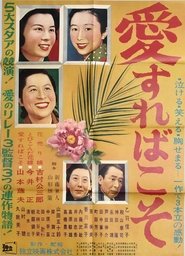
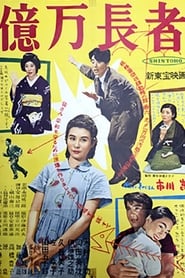 An ethical young tax collector new...
An ethical young tax collector new...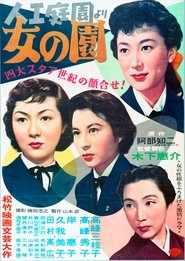 A student at a womans university...
A student at a womans university... A young woman takes up her...
A young woman takes up her...